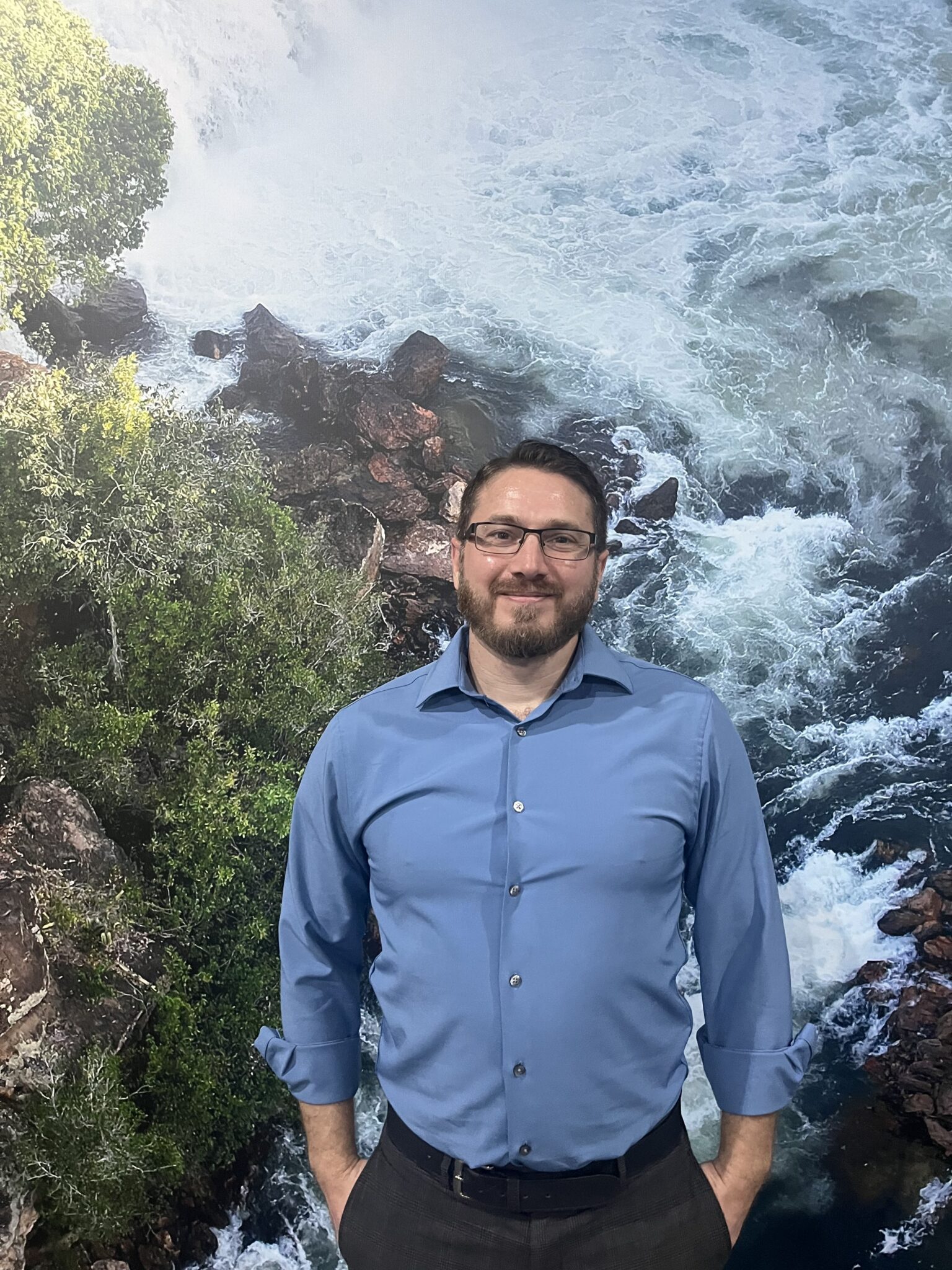Feature
Stretched Thin, Iowa Agency Issues Few Fines for Manure Pollution
Climate•9 min read
Conversations
“I think it's been a pretty big disappointment.”


Words by Grace Hussain
Over the weekend, the 30th United Nations Climate Conference concluded with most attendees feeling disappointed in the outcomes, or lack thereof. Most of the discussions did not touch on emissions from food — accounting for roughly a third of all emissions — nor one of its most effective solutions, plant-based diets.
Emissions from meat and other livestock farming contributes about 32% of all human-caused methane emissions, which are 80 percent more potent over a 20-year time scale. During an address to attendees, Ambassador Jeem Lippwe, who represented the Federated States of Micronesia, said “if we are serious about 1.5 degrees and preventing more tipping points then we must be serious about methane and other super pollutants,” calling for “fast mitigation of methane.”
The environmental group Project Drawdown evaluates and recommends solutions for tackling greenhouse gas emissions, including methane, based on a review of existing scientific evidence. At COP, Sentient interviewed Daniel Jasper, the organization’s senior policy advisor, to get his thoughts on the climate conference and the commitments coming out of it.
Grace Hussain, Sentient: This year, COP was in the Amazon rainforest in Brazil, where beef production is driving deforestation in the Amazon. How did we see that reflected in this year’s conference?
Daniel Jasper, Project Drawdown: Well, I think we saw some nods to food and agriculture, but unfortunately, I don’t know that we saw enough in terms of meat production and livestock in particular. You know, I’ve gone through probably six of the major texts that are coming out of negotiations, and none of them reference livestock in particular. There’s a lot of discussions about smallholder farmers and supporting them, as well as making sure that components of human well being are protected and increasing social protections. But unfortunately, we did not see enough discussion about livestock or meat production in particular, or even diets in general. So I think this is a pretty big missed opportunity.
Hussain: All things considered, would you consider this a successful COP?

Jasper: I suppose it depends on what you mean by that. Certainly I have a lot of sympathy for the Brazilian presidency. They’ve had a lot of challenges here, and they’ve done their best to, I think, at least make some progress.
If we focus on food and livestock, however, no, I don’t think this has been successful at all. Unfortunately, I think it’s been a pretty big disappointment. Some of the major conversations, especially emerging from the Sharm el-Sheikh joint work program on agriculture, were supposed to be implemented at this COP. Even though we need to be talking about implementation and action on food systems transformation, we just didn’t have those conversations.
Note: The Sharm el-Sheikh joint work program on agriculture came out of COP27. It was meant to critically examine the interconnections between climate change and agriculture, specifically how the food system could be leveraged to combat climate change.
Hussain: Since methane is a more potent and short-lived greenhouse gas in comparison to carbon dioxide, researchers say cutting methane gives us one of the quickest ways to address rising global temperatures. Was methane in the discussions at this COP, and if so, did the discussion include agriculture or food systems at all?
Jasper: It was in the mitigation work program — an initiative to scale up the work of mitigating climate emissions — that removed references to food loss and waste. We saw some side conversations, certainly around methane, but in relation to food, I think that conversation is missing. Overall, I think this is a pretty big missed opportunity.
Given how difficult the conversation is around fossil fuels and the lack of progress so far on cutting emissions, phasing out methane, specifically from the food system, would give us more time — potentially another decade — to put into place clean energy transition solutions, things like solar and wind. But that conversation just wasn’t happening.
Hussain: Are COP side events (events that provide COP observer organizations a platform to speak and engage with negotiating parties) giving more attention to livestock production and climate change? If so, how are they framing that conversation?
Jasper: Good question. We did see some, and to be honest, I didn’t attend all of them because they didn’t really look all that informative to me. But there was some discussion around reduced methane livestock production, as in feeding cows things like seaweed that can reduce methane from belching as well as genetically modified or different breeds of livestock.
Hussain: One thing that’s gotten a lot of attention this year is the overwhelming presence of fossil fuel lobbyists with one in 25 COP participants affiliated with the fossil fuel industry. But we know that meat industry and agriculture lobbyists also tend to have a presence here. What sort of impact if any, do you think that that may have had on the discussions?
Jasper: We saw 300 lobbyists from the industrial agricultural sector, with many of them embedded in country delegations. In Brazil, you can see these industries up close and center, and when they’re embedded in country delegations, you know that they may have some impact in terms of what language is used. But it’s tough for me to say exactly what they may have contributed to, because a lot of the negotiations happen behind closed doors. My guess is, given everything we just talked about and all the missed opportunities we saw, they were absolutely a big part of making sure that we missed this opportunity.
Hussain: Pivoting now to talk a little bit more about solutions, we’ve already established that we’re not seeing any solutions when it comes to greenhouse gas emissions from agriculture coming out of this year’s COP. What solutions would you like to see coming out of the conference?
Jasper: This is a little bit of a country-by-country issue, but we obviously need to talk more about plant-based diets, especially for rich countries. There are some countries that have particular nutrition needs and challenges, but plant-based diets are probably one of the biggest solutions that we need to start talking about.
Hussain: So if you were to see something along the lines of a mandate for rich countries to reduce their meat consumption, what might that look like?
Jasper: There’s been a lot of discussion about subsidies that are harmful. One path forward would be to reconfigure climate financing into other more productive and less harmful areas.
We also heard a lot about forests this year, but we didn’t hear so much about livestock’s impact on forests. And this is an area that I think rich countries can probably lead on in terms of providing finance to their farmers and providing a roadmap to transitioning toward more crops for human consumption.
One of the biggest avenues that rich countries have to pursue this are “nationally determined contributions” or NDCs — aligning their national commitments with the Paris Climate Agreement goals of limiting climate warming. What this looks like varies by country, but there are a lot of opportunities here.
Hussain: What are the three biggest takeaways from COP 30 for the public?
Jasper: Number one, I think we heard repeatedly that the elephant in the room of every COP is finance, and that applies to this COP as well. Nothing’s really going to get done without the financing. When we’re talking about food and agriculture — especially supporting low and middle income countries in transition — we need to make sure that the financing is there.
The other takeaway is that the primary text coming out of this COP, the Mutirão, makes no discussion of food and agriculture. I think that’s shocking. Again, a huge missed opportunity.
A third takeaway is that we did see some headway with voluntary commitments. I believe in the last round of NDCs, 89% of them mentioned at least one aspect of food and agriculture. This round, we saw over 90%, so there’s a slight increase there. Very few NDCs mention plant based diets, so there’s a little progress that’s happening at a very slow pace, but there is some progress happening.
Hussain: Were you at all surprised by the lack of food systems discussion, given the intense effort that was made to have this not just in Brazil, but in the Amazon rainforest?
Jasper: Yes and no. Yes, in the sense that given the attention to forest, food is such a huge driver of deforestation that you would think it would be difficult to avoid the subject. But I guess I was wrong.
But no, it’s not surprising in the sense that it is such a sensitive subject. And I think this is lost on the public in a lot of respects. Many people think oil and gas is a very difficult issue in negotiations, and that’s true. But food systems may be more sensitive and difficult in these negotiating rooms than oil and gas.
Hussain: Anything else our readers should know?
Jasper: One of the biggest texts that we saw come out wasn’t a negotiating text, but it was a roadmap for finance. Agriculture is one of the key themes in that text, which, to me, is encouraging. There was a lot of discussion about grants and financing for smallholder farmers, as well as women and Indigenous groups. That recognition is really important, but at the same time, we’re just not seeing rich countries put up the money and sort of spur the issue of financing altogether. This is an important issue that we really need to keep an eye on going forward.
This interview has been edited for length and clarity.